30+ Sample Marketing Agreement
-
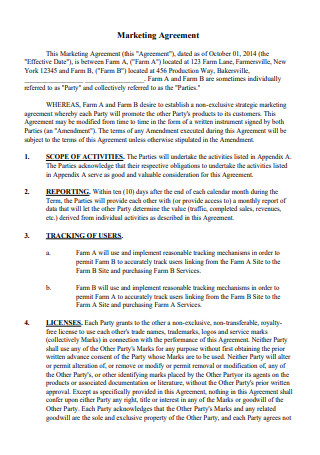
Marketing Agreement Template
download now -
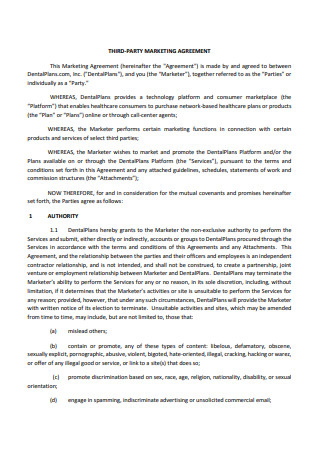
Third-Party Marketing Agreement
download now -
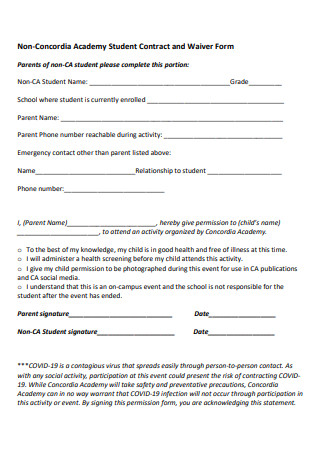
Event Marketing Agreement
download now -
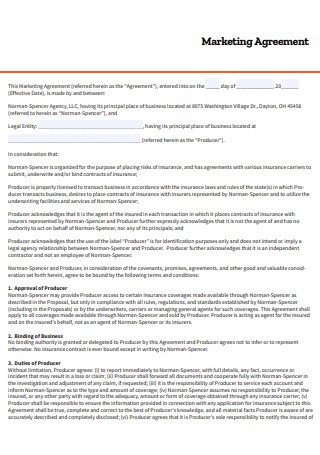
Basic Marketing Agreement
download now -
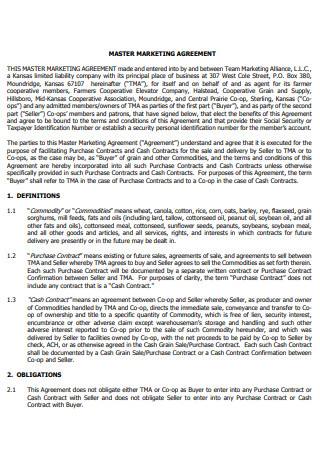
Master Marketing Agreement
download now -
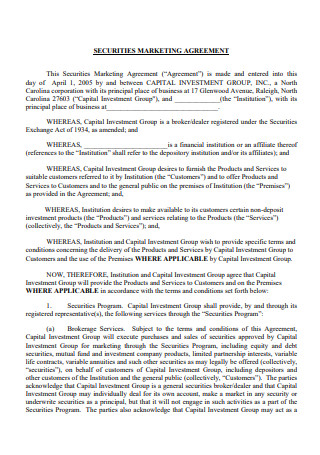
Securities Marketing Agreement
download now -
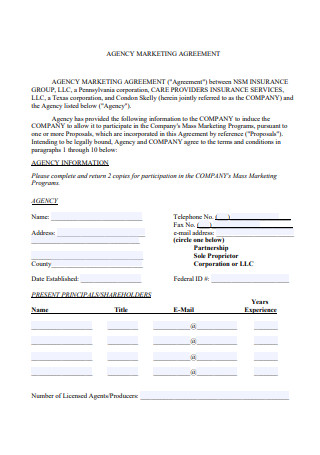
Agency Marketing Agreement
download now -
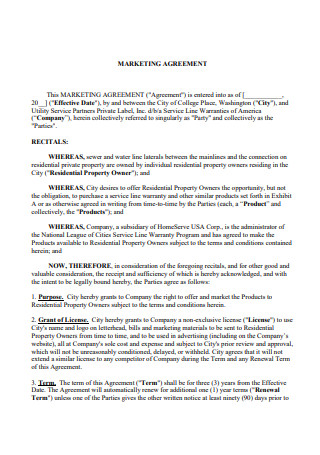
Marketing Agreement Example
download now -
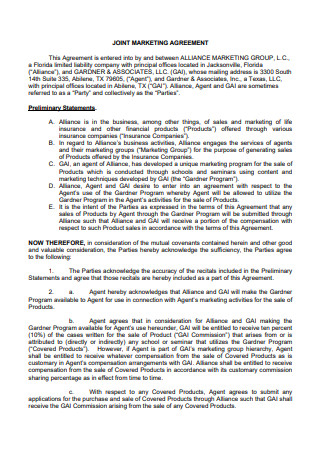
Joint Marketing Agreement
download now -
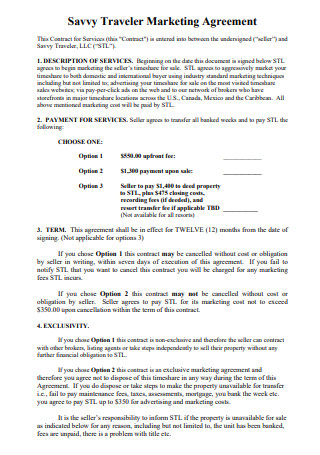
Traveler Marketing Agreement
download now -
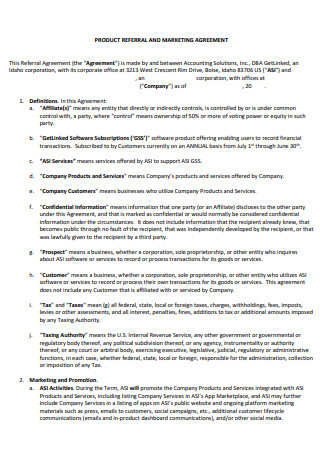
Product Referral and Marketing Agreement
download now -
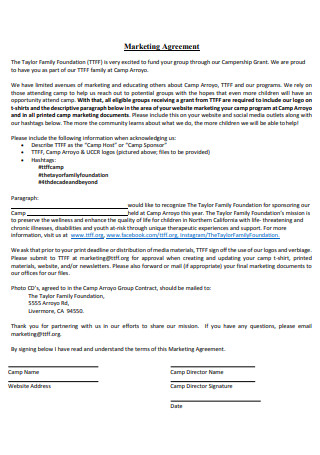
Marketing Agreement in PDF
download now -
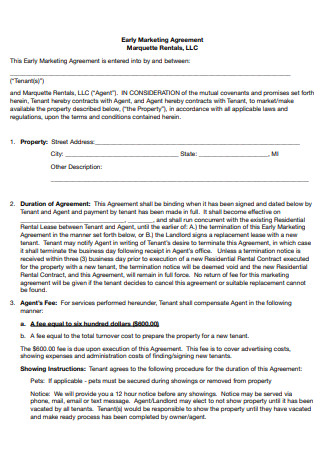
Early Marketing Agreement
download now -
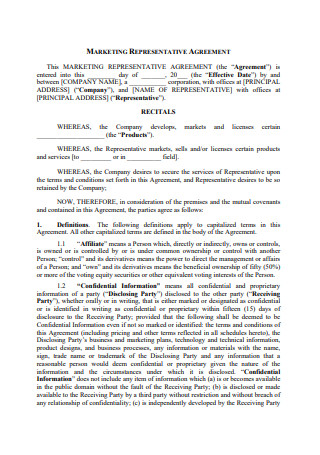
Marketing Representative Agreement
download now -
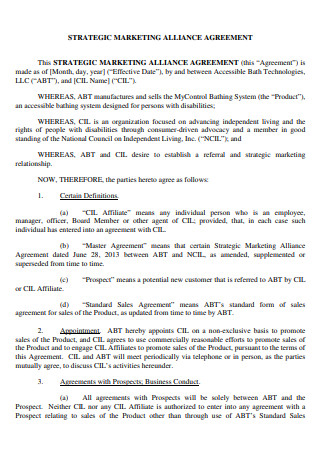
Strategic Marketing Alliance Agreement
download now -
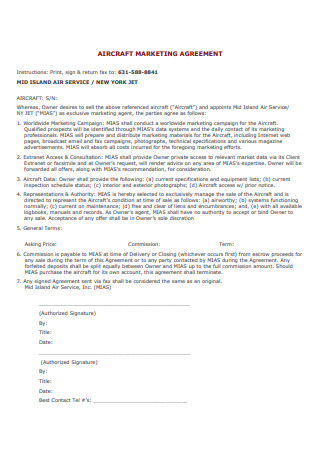
Aircraft Marketing Agreement
download now -
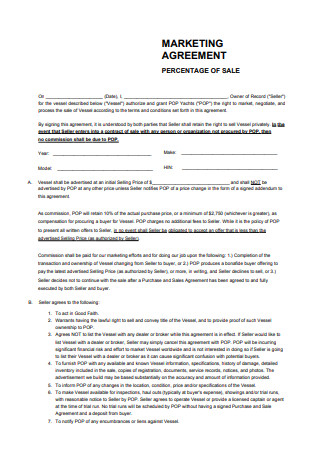
Printable Marketing Agreement
download now -
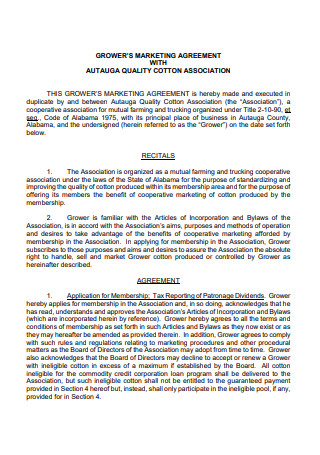
Simple Marketing Agreement
download now -
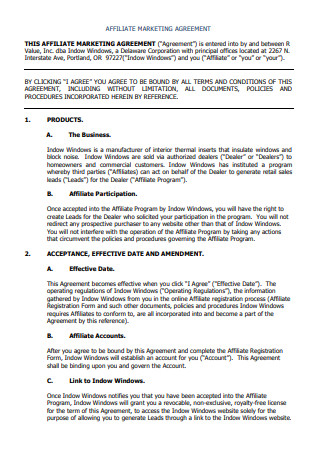
Affiliate Marketing Agreement
download now -
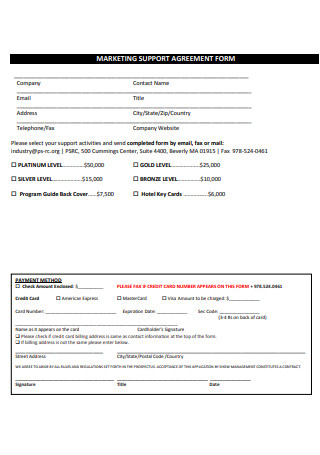
Marketing Support Agreement Form
download now -
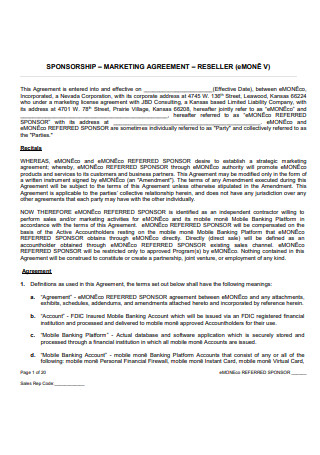
Sponsorship Marketing Agreement
download now -
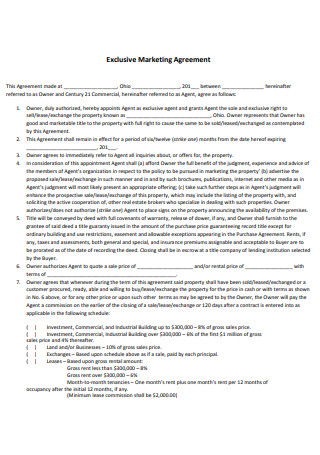
Exclusive Marketing Agreement
download now -
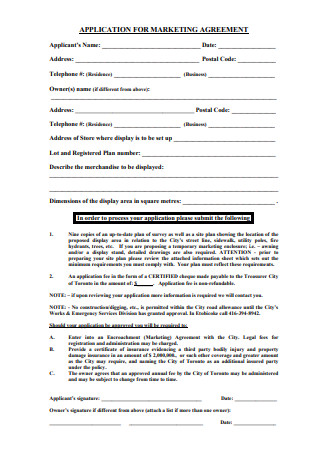
Application For Marketing Agreement
download now -
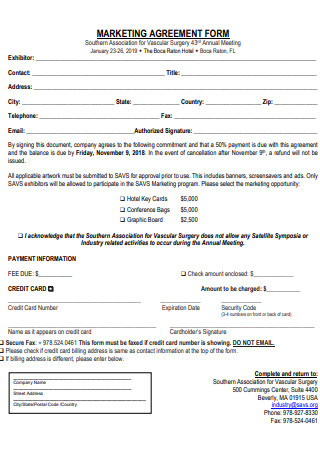
Marketing Agreement Form
download now -
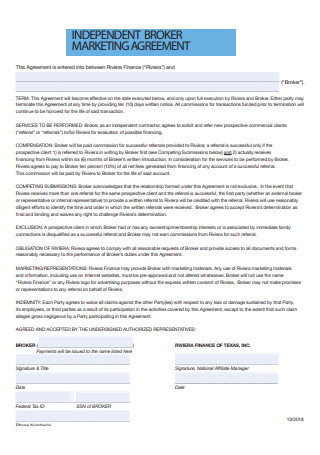
Independent Broker Marketing Agreement
download now -
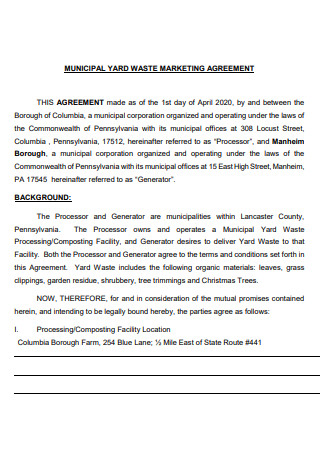
Municipal Marketing Agreement
download now -
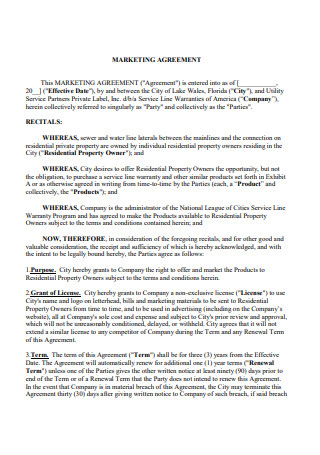
Standard Marketing Agreement
download now -
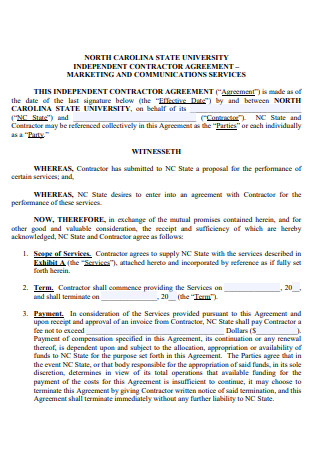
Marketing Independent Agreement
download now -
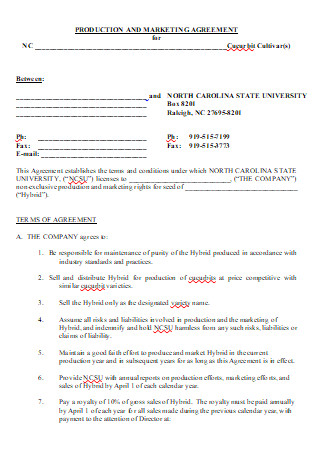
Production and Marketing Agreement
download now -
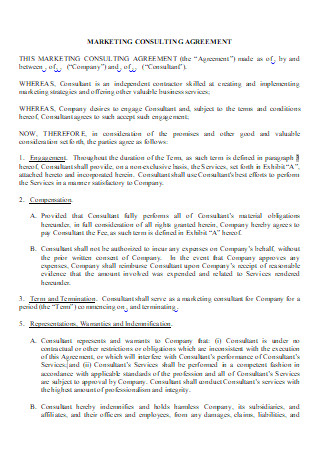
Marketing Consulting Agreement
download now -
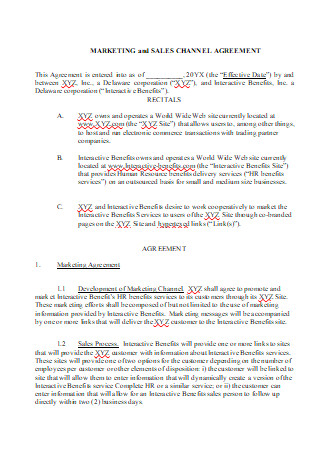
Marketing and Sales Channel Agreement
download now
What are marketing strategies, and what advantages do they bring to your business? Learn about this meaningful arrangement, starting with its definition, composition, and construction. The article also answers frequently asked questions related to marketing agreements.
What Is a Marketing Agreement?
A marketing agreement, otherwise known as a joint marketing agreement, details the terms and conditions between a marketer to aid a client to sell their products or services through creating marketable materials and strategies to promote their merchandise to the public. It also helps expand its market locally and internationally to new consumers. Marketing materials a promoter utilizes for companies include printed items, like flyers, brochures, and pamphlets. Marketers also use online marketing through website and social media advertising, promotional events, and trade shows. The marketing agreement contains the marketing scope of work, duties, and company expectations from the agency.
According to the website Statista and the statistical data regarding the Global Marketing Data Market Size from 2017 to 2021, the value of the global marketing data market reaches 34.61 billion US Dollars last 2019. A foreseeable growth in the market tallies to an impressive amount of 52.26 billion US Dollars in 2021. Despite the pandemic, the marketing industry continues to thrive and flourish.
Parts of a Marketing Agreement
Unlike other agreements and contracts, there is no structure or standardization in the contents of a marketing agreement. Companies tailor their marketing agreements according to the business, industry, and situation relating to the scope of work of the possible marketing agent. Below are the essential elements of a marketing agreement that your document must contain.
Useful Tips to Draft a Marketing Agreement
If your company prefers to leave the advertising, promotion, and public relations for new products at the hands of marketing agencies and consultants, then it’s best to have a well-written and comprehensive marketing agreement. Marketing agreements must cover the scope of work and the complete timeline of events under the arrangement. Below are helpful tips in drafting a marketing agreement for advertising purposes.
Tip 1: Incorporate an Exclusivity Statement into the Agreement
Most marketing agreements indicate an exclusivity statement detailing and granting exclusive rights to a client or agency for the service of a particular product within a definite territory and timeline. The document must identify the client and consultant in structuring the agreement. The services the marketing consultant provides the client company include product or event advertisements, press releases, media conferences, social media promotions, promotional events, product launches, brochure handouts, among others. Most importantly, it states that no other agency handles the marketing services during the agreement’s duration.
Tip 2: Specify the Essential Details
Clearly indicate the start and end dates of the agreement. Some clauses give the agency the right to continue promoting or marketing products for another year after the expiry of the arrangement. It must also indicate the exact amount of payment to be prepared by the client and when the due dates for these payments are possible. If the agreement states for a monthly payment, it specifies the dates for settling the dues.
Tip 3: Be Aware of Possible Variations in the Process
It is best to tailor your marketing agreements according to the project you are working on. These project-specific marketing agreements harbors similar statements, clauses, and provisions to a general marketing agreement with content like the scope of work, payment terms, and generated timeline. However, project-based and general agreements focus on various work, and there are instances where price negotiations happen. It is advisable to keep this variation in mind as it happens often in the field of marketing.
Tip 4: Write Down the Guarantees in the Agreement
Marketing ventures have no definites and certainties because consumers respond differently to advertisements and campaigns. It is necessary to indicate a system criteria to estimate the marketing consultant’s productivity by the agreement’s termination. Include audit checks to go over the sales trend along the timeline. It is also best to execute decisions based on predetermined sales trends and industry averages. You can also measure customer satisfaction, customer loyalty, and employee involvement in marketing efforts through the use of employee questionnaires and surveys.
FAQs
What is an advertising agreement?
An advertising agreement ensures that an advertiser and the identity employing the service or hosting the advertising understands their responsibilities to each other and agreeing on the possible compensation, whether monetary or not, for the arrangement.
What is a branding agreement?
A branding agreement or a brand partnership agreement identifies the rights, restrictions, responsibilities of the parties within the joint venture. It defines the co-branding strategy of the parties and must be carefully written and composed to protect the individuals or organizations signing the agreement.
What is the purpose of a marketing agreement?
Marketing agreements provide a clear and written explanation of expectations between the two parties. It details what the marketing agency can and cannot offer in terms of serving the purpose of the agreement, saving time and money in the process. It is clear on the deadlines and provides specifics about remuneration, establishing a positive relationship. It also ensures that the intellectual property of both parties is intact. It is clear on the penalties for the failure of submitting deliverables and provides the basis for early agreement terminations.
If you are looking to create a marketing arrangement with a consultant or agency, it is imperative to be knowledgeable on the concept of these documents. A company needs to draft a marketing agreement because it serves as a legal document you can use when the turnout of the agreement is in shambles. Remember that the best marketing agreement serves its purpose and under the supervision of a knowledgeable attorney and adhering to the vision of the client. Create a marketing agreement for your next marketing service by downloading and using the available marketing agreement templates above!
